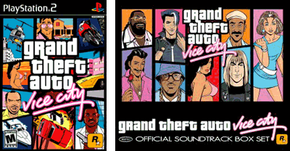Other Licensing Scenarios
There are many other situations where you need a license to use music. Here are several examples:
- You want to create a new song that uses samples of other songs. Even if you are using just a few notes, you need to obtain licenses through an organization like LicenseMusicNow.com. Otherwise, you will end up paying even more in penalties when the song is played in public.
- You want to play music in your lobby, elevator, restrooms, etc. You either need to obtain performance licenses from ASCAP and BMI, or you need to contract with a company like Muzak, which handles all the licensing for you.
- You want to play music in your small restaurant. You have three choices. Technically, you can play the radio. But in that case your customers will be listening to all the commercials, which they may not appreciate. You can play tapes or CDs. In that case you need to file with ASCAP and BMI for blanket licenses. Or you can contract with a commercial music services firm like Muzak.
- You are making a yearbook DVD for school, a wedding video, etc. and you want background music. You cannot legally use songs off a CD for these purposes. That forces you to look for production music -- music produced by companies specifically for these applications. The simplest example of production music is the kind of music you get when you buy sound effect files and music clips on a CD. A place like Music Box offers complete songs in many different styles.
To see how particular things can get, consider this example:
Advertisement
Let's say you have a cheerleading squad at your high school and you buy a CD from a place like Power Music for your practice sessions. Now you want to play the CD while your squad performs at a basketball game. The school should have waivers for ASCAP and BMI for that, but you need to make sure. If a local TV station wants to broadcast the game, there is a problem if you perform to the music because that is a retransmission of the music. Then if you want to video tape your squad performing to the music and sell the video tape, you have the same sort of retransmission problem. There are so many problems, in fact, that Power Music offers a FAQ on it. In the FAQ it says, "Over the years our writers and producers have created hundreds of songs that are available for video license. Since we own the recordings and the compositions we can grant you the license to manufacture videos with music from our catalog."
In other words, about the only time you do not have to pay to use music is when you are sitting in your home or automobile listening to the radio with your family. And in that case, the radio station paid for you to hear the music with blanket licenses from ASCAP and BMI, and you pay by listening to the station's commercials. Every other possible use of music legally requires the payment of a licensing fee.
For more information on music licensing and related topics, check out the links below.
Music Licensing FAQ
Who is responsible for paying music licensing fees?
Do you need a license to stream music?
How do you license music for a video?
How much does music licensing cost?
How can I avoid paying music license fees?
Related HowStuffWorks Articles
More Great Links
- ASCAP (American Society of Composers, Authors and Publishers)
- BMI(Broadcast Music Incorporated)
- Copyright office: Circular 56 -- Copyright Registration for Sound Recordings
- Common Music Licensing Terms
- Frequently Asked Questions About Licensing
- Commercials
- General Licensing FAQ
- Licensing forms
- ASCAP & BMI -- Protectors of Artists or Shadowy Thieves? An article by Harvey Reid
- The Happy Birthday Song
- Obtaining permission to use Power Music for your video production
- Music Licensing: Getting Your Music into Movies, TV, and Ads
- Compendia Music Licensing
- License Music Now FAQ
- Programmed music a business solution
- Jingle Use Of Songs
- Rock Covers FAQ
Please copy/paste the following text to properly cite this HowStuffWorks.com article:
